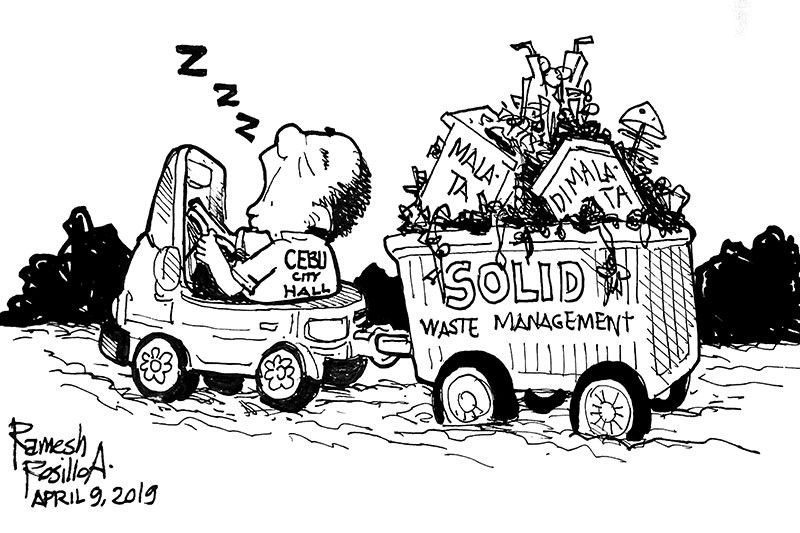EDITORIAL - Defective waste disposal

It cannot be denied that unsegregated trash is one of the problems the Cebu City government is having difficulty solving. Aside from the usual dilemma on the frequency of collection, other policies on waste disposal were not being complied with.
Take for example the area of segregation. The Commission on Audit (COA) said the city government could have saved additional money last year if it aggressively enforced mandatory segregation of solid waste.
The commission, in its audit observation memorandum, noted that the City Hall spent millions of pesos for the hauling of garbage in 2018 because it failed to properly implement the segregation policy. Last year, the city reportedly spent at least P234.2 million in disposing of 186,988.05 tons of trash.
"In our audit of the Solid Waste Management Fund, we have observed that the City did not actively implement the Mandatory Segregation of Solid Wastes. From point of origin (source) to its final disposal place, these solid wastes are not segregated according to their material state… Despite the fact there is already an existing City ordinance for this matter, the non-observance of mandatory segregation is still evident today," the COA memorandum stated.
For the COA, the city government would have spent less on waste disposal if it was religiously implementing the segregation policy. The city has Ordinance 2031, in effect since 2004, that mandates residents to segregate waste but failed to strictly implement it, according to COA.
Based on the commission’s observation, it’s obvious that the city committed lapses in its trash disposal. It should have strictly monitored barangays whether or not they are aggressively pushing residents to comply with the segregation policy.
Following the COA findings, the city is expected to apply corrective measures on its defective disposal of waste. It must see to it that it will not collect unsegregated trash to teach erring residents a lesson.
- Latest


















